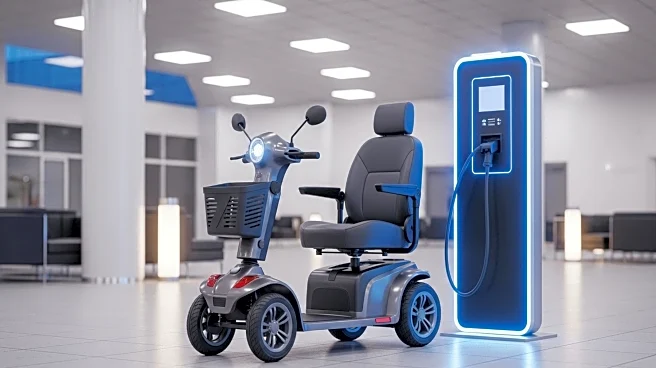What's Happening?
Dr. Jurai Darongkamas, a clinical psychologist from Birmingham, UK, faced travel difficulties when Qantas refused to allow her mobility scooter on a flight due to its lithium battery. Despite traveling globally without issues, Darongkamas was denied boarding on a Qantas flight from Sydney to New Zealand. The airline classified her scooter as a personal electronic device rather than a mobility aid, leading to a six-month complaint process. Qantas's policy permits mobility aids with lithium batteries up to 300Wh, provided they can be removed and carried into the cabin. Darongkamas argues her scooter meets these criteria, but Qantas cited safety concerns. The incident highlights inconsistencies in airline policies regarding mobility aids, prompting calls for clearer accessibility standards.
Why It's Important?
This incident underscores the challenges faced by individuals with disabilities when traveling, particularly regarding inconsistent airline policies on mobility aids. The refusal by Qantas to accommodate Darongkamas's scooter raises broader questions about accessibility and discrimination in air travel. As airlines tighten restrictions on lithium batteries, the need for standardized regulations becomes apparent. This situation affects not only individuals with disabilities but also advocates working towards equitable travel standards. The case has prompted discussions on the need for an independent aviation ombudsman to address such disputes, potentially influencing future policy changes in the aviation industry.
What's Next?
The Australian federal government is collaborating with disability advocates to establish clear accessibility standards following the release of the aviation white paper. The government plans to replace the Airline Customer Advocate with an independent aviation ombudsman next year, aiming to provide a more effective resolution mechanism for passenger complaints. Qantas has apologized for the confusion and is working to improve communication between its teams. The outcome of these efforts could lead to more consistent and fair treatment of passengers with specific needs, potentially setting a precedent for other airlines.
Beyond the Headlines
The incident highlights ethical and legal dimensions regarding the treatment of passengers with disabilities. Airlines have obligations under discrimination and consumer law, yet inconsistencies persist. This case may prompt airlines to invest more in accessibility, ensuring that passengers with disabilities do not have to confront large corporations for fair treatment. The broader cultural shift towards inclusivity in travel services could be accelerated by such high-profile cases, influencing industry standards and consumer expectations.









